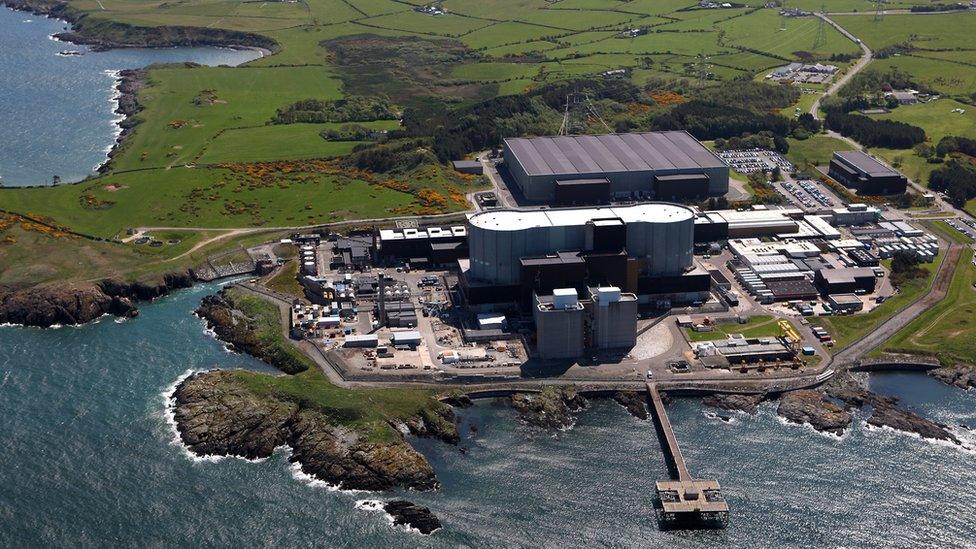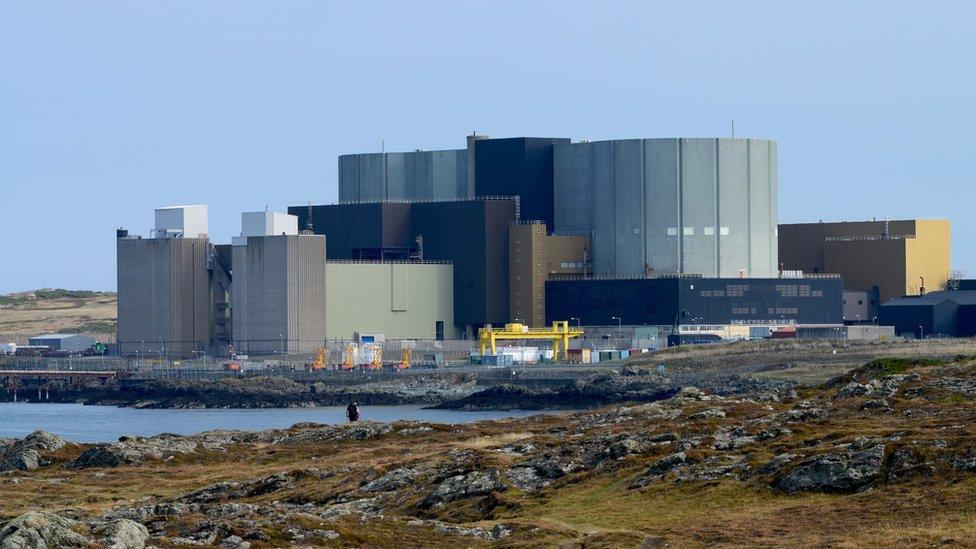Wylfa nuclear fuel to be removed from plant in two years
- Published

All nuclear fuel at a former Welsh power plant should be off the site within two years, specialist teams have said.
It is exactly a year since the last nuclear reactor was switched off at Wylfa on Anglesey.
But staff told BBC Wales it had been 12 months of both personal and technical challenges to overcome.
It includes the loss of over 200 jobs at the plant over the period, and more to come after de-fuelling ends.
It has been a challenging time for site director, Stuart Law
"There's been many challenges and there's times you have felt really uncomfortable," said site director Stuart Law.
"You can see individuals you have known and worked with for many years coming to terms with the situation we are in.
"We have so many good people across this site, and people who have left, and their knowledge was about how this all ran.
"Today, it's about the de-fuelling process and how you take it apart. It's a different mindset and difficult to get your mind around."
When the second of two reactors at Wylfa was turned off on 30 December, 2015, there were about 550 people working at the site.
A year on, the roll-call of those working for Magnox at the Anglesey plant stands at 344.
But the head of the Wylfa site said the firm had been "really fortunate" and had been able "to meet the aspirations of lots of people" - whether through voluntary redundancies, retirement, or redeployment at other Magnox sites - including Trawsfynydd in Gwynedd, which is also undergoing decommissioning.
"Remember, we have a job to do, and that job is to do the de-fuelling," he said.
"So we have kept a large number of staff as well - 344 today is still a big employer on Anglesey."
It has meant people such as Gareth Jackson have had to rethink their roles.
The senior production technician is one of many at the plant who have had to switch from working regular day shifts to a 12-hour pattern, as the de-fuelling operation runs around the clock.
It has been a steep learning curve for him, as he trained for the new skills needed in the task.
Wylfa one year on: "A good change" for workers
"I'm starting all over again," he said.
"It's been a good change in many respects. Initially, I had just six months work - now I've got until when the fuel goes out of the reactor.
"It's job security - and that's what we all need in the end."
However, the task at Wylfa remains enormous.
Since de-fuelling began at Easter 2016, about 25% of the total spent fuel used at Wylfa has been recovered and removed.
But it still means there are 74,389 Magnox fuel elements on site that need to go for reprocessing.
And it will require nearly 500 more journeys of specially constructed nuclear flasks from Anglesey to Sellafield in Cumbria.
What happened to Wylfa's nuclear fuel?
- Published30 December 2015

- Published30 December 2015

- Published30 December 2015
